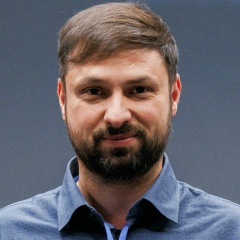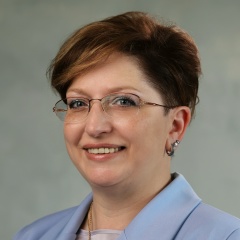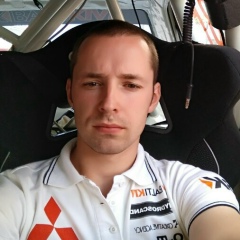Получается, с этой точки зрения все, кто пытается "вырваться из системы", "выйти из матрицы" энд соу он, тоже в какой-то степени - по отношению к системе - рак:
"Давайте я сразу быстренько объясню, и дальше будем плясать оттуда. Понимаете, деление, то есть размножение, не требует объяснения. Оно есть, потому что оно есть. Если бы вещи не воспроизводили сами себя, они бы перестали быть жизнью и стали бы просто объектами, которые исчезают и забываются. Как только воспроизведение появляется – оно продолжает существовать, может меняться только эффективность и дополнительные приспособления, способствующие этой эффективности.
Около четырёх миллиардов лет назад воспроизводились отдельные молекулы. Затем появились воспроизводящиеся молекулы, объединённые в цельные группы с разделением функций и заключённые в оболочку. Такая форма кооперации между ними была очень успешной и вытеснила всё остальное. Жизнь стала клеточной. Если смотреть на клетку с позиций отдельного гена – то ты получаешь защиту и уверенность в завтрашнем дне, потому что тебя автоматически воспроизводят. Но при этом, в общем, ограничен в правах, потому что не можешь просто взять и пойти гулять в другую клетку. С точки зрения гена выгодно быть и в этой клетке, и в какой-нибудь другой. Но с точки зрения клетки как единого целого это не очень выгодно, потому что твои гены помогают не тебе, а сами себе и другим клеткам. Поэтому клетки в целом ограничивают свободное распространение генов, которым они хотят заниматься по определению. При этом такие ограничения бывают выражены в большей или меньшей степени, в зависимости от того, насколько сильна власть клетки над собственными генами – у бактерий, например, горизонтальный перенос генов это почти норма, потому что у них самоопределение клетки менее выражено, чем у нас.
Проходит ещё два миллиарда лет, и ровно та же история происходит уже с самими клетками. Некоторые из них объединяются в гигантские колонии с разделением функций и централизованным размножением. Такая форма кооперации между ними становится очень успешной и позволияет занять кучу новых экологических ниш, включая наземные. Если смотреть на организм с точки зрения отдельной клетки – то ты получаешь защиту и уверенность в завтрашнем дне, потому что твои гены передадутся дальше через твоих братьев в половых органах. Но при этом ты ограничен в правах, потому что не можешь просто так взять и пойти гулять и строить свои собственные организмы. С точки зрения клетки выгодно делиться и в составе организма, и вообще в любой другой ситуации. Но с точки зрения всего организма беспорядочное деление клеток кто как хочет – это очень опасно. Поэтому организмы в целом ограничивают свободное деление клеток, которым они хотят заниматься по определению. Рак – это состояние по умолчанию для любой здравомыслящей клетки. Просто поскольку мы эволюционировали по пути огромного цельного многоклеточного организма, мы развили кучу механизмов ограничения собственных клеток в правах. Клетки связаны кучей барьеров, которые не дают им свободно делиться, как изнутри, так и снаружи. Но поскольку стремление генов размножаться заложено в них по определению и никуда не делось с момента зарождения жизни, иногда клетки просачиваются сквозь все эти ограничения и превращаются в рак. Рак – это побочный продукт многоклеточности, он всегда был и всегда будет"
Коля Кукушкин
"Давайте я сразу быстренько объясню, и дальше будем плясать оттуда. Понимаете, деление, то есть размножение, не требует объяснения. Оно есть, потому что оно есть. Если бы вещи не воспроизводили сами себя, они бы перестали быть жизнью и стали бы просто объектами, которые исчезают и забываются. Как только воспроизведение появляется – оно продолжает существовать, может меняться только эффективность и дополнительные приспособления, способствующие этой эффективности.
Около четырёх миллиардов лет назад воспроизводились отдельные молекулы. Затем появились воспроизводящиеся молекулы, объединённые в цельные группы с разделением функций и заключённые в оболочку. Такая форма кооперации между ними была очень успешной и вытеснила всё остальное. Жизнь стала клеточной. Если смотреть на клетку с позиций отдельного гена – то ты получаешь защиту и уверенность в завтрашнем дне, потому что тебя автоматически воспроизводят. Но при этом, в общем, ограничен в правах, потому что не можешь просто взять и пойти гулять в другую клетку. С точки зрения гена выгодно быть и в этой клетке, и в какой-нибудь другой. Но с точки зрения клетки как единого целого это не очень выгодно, потому что твои гены помогают не тебе, а сами себе и другим клеткам. Поэтому клетки в целом ограничивают свободное распространение генов, которым они хотят заниматься по определению. При этом такие ограничения бывают выражены в большей или меньшей степени, в зависимости от того, насколько сильна власть клетки над собственными генами – у бактерий, например, горизонтальный перенос генов это почти норма, потому что у них самоопределение клетки менее выражено, чем у нас.
Проходит ещё два миллиарда лет, и ровно та же история происходит уже с самими клетками. Некоторые из них объединяются в гигантские колонии с разделением функций и централизованным размножением. Такая форма кооперации между ними становится очень успешной и позволияет занять кучу новых экологических ниш, включая наземные. Если смотреть на организм с точки зрения отдельной клетки – то ты получаешь защиту и уверенность в завтрашнем дне, потому что твои гены передадутся дальше через твоих братьев в половых органах. Но при этом ты ограничен в правах, потому что не можешь просто так взять и пойти гулять и строить свои собственные организмы. С точки зрения клетки выгодно делиться и в составе организма, и вообще в любой другой ситуации. Но с точки зрения всего организма беспорядочное деление клеток кто как хочет – это очень опасно. Поэтому организмы в целом ограничивают свободное деление клеток, которым они хотят заниматься по определению. Рак – это состояние по умолчанию для любой здравомыслящей клетки. Просто поскольку мы эволюционировали по пути огромного цельного многоклеточного организма, мы развили кучу механизмов ограничения собственных клеток в правах. Клетки связаны кучей барьеров, которые не дают им свободно делиться, как изнутри, так и снаружи. Но поскольку стремление генов размножаться заложено в них по определению и никуда не делось с момента зарождения жизни, иногда клетки просачиваются сквозь все эти ограничения и превращаются в рак. Рак – это побочный продукт многоклеточности, он всегда был и всегда будет"
Коля Кукушкин
It turns out, from this point of view, everyone who is trying to “break out of the system”, “get out of the matrix” and he, too, to some extent - in relation to the system - cancer:
"Let me explain quickly right away, and then we will dance from there. You see, division, that is, reproduction, does not require an explanation. It exists because it exists. If things did not reproduce themselves, they would cease to be life and would simply become objects that disappear and are forgotten.As soon as reproduction appears, it continues to exist, only efficiency and additional devices that contribute to this efficiency can change.
About four billion years ago, individual molecules were reproduced. Then, reproducing molecules appeared, combined into integral groups with a separation of functions and enclosed in a shell. This form of cooperation between them was very successful and supplanted everything else. Life has become cellular. If you look at the cell from the standpoint of a single gene, then you get protection and confidence in the future, because you are automatically reproduced. But at the same time, in general, he is limited in rights, because you can’t just take and go for a walk to another cell. From the point of view of the gene, it is beneficial to be in this cell and in some other one. But from the point of view of the cell as a whole, this is not very beneficial, because your genes do not help you, but themselves and other cells. Therefore, cells as a whole limit the free distribution of genes that they want to do by definition. Moreover, such restrictions are expressed to a greater or lesser extent, depending on how strong the cell’s power over its own genes is in bacteria, for example, horizontal gene transfer is almost the norm, because their self-determination of the cell is less pronounced than ours.
Another two billion years pass, and exactly the same story is already happening with the cells themselves. Some of them are combined into giant colonies with separation of functions and centralized reproduction. This form of cooperation between them becomes very successful and allows you to take a bunch of new ecological niches, including land ones. If you look at the body from the point of view of a single cell, then you get protection and confidence in the future, because your genes will be passed on through your brothers in the genitals. But at the same time, you are limited in rights because you cannot just take it and go for a walk and build your own organisms. From the point of view of the cell, it is beneficial to share both in the composition of the body, and in general in any other situation. But from the point of view of the whole organism, random cell division, whoever wants it, is very dangerous. Therefore, organisms as a whole limit the free division of cells, which they want to do by definition. Cancer is the default state for any sane cell. Just because we have evolved along the path of a huge whole multicellular organism, we have developed a bunch of mechanisms to limit our own cells in their rights. Cells are connected by a bunch of barriers that prevent them from freely sharing, both inside and out. But since the desire of genes to multiply is inherent in them by definition and has not gone anywhere since the inception of life, sometimes cells leak through all these restrictions and turn into cancer. Cancer is a byproduct of multicellularity, it has always been and always will be. "
Kolya Kukushkin
"Let me explain quickly right away, and then we will dance from there. You see, division, that is, reproduction, does not require an explanation. It exists because it exists. If things did not reproduce themselves, they would cease to be life and would simply become objects that disappear and are forgotten.As soon as reproduction appears, it continues to exist, only efficiency and additional devices that contribute to this efficiency can change.
About four billion years ago, individual molecules were reproduced. Then, reproducing molecules appeared, combined into integral groups with a separation of functions and enclosed in a shell. This form of cooperation between them was very successful and supplanted everything else. Life has become cellular. If you look at the cell from the standpoint of a single gene, then you get protection and confidence in the future, because you are automatically reproduced. But at the same time, in general, he is limited in rights, because you can’t just take and go for a walk to another cell. From the point of view of the gene, it is beneficial to be in this cell and in some other one. But from the point of view of the cell as a whole, this is not very beneficial, because your genes do not help you, but themselves and other cells. Therefore, cells as a whole limit the free distribution of genes that they want to do by definition. Moreover, such restrictions are expressed to a greater or lesser extent, depending on how strong the cell’s power over its own genes is in bacteria, for example, horizontal gene transfer is almost the norm, because their self-determination of the cell is less pronounced than ours.
Another two billion years pass, and exactly the same story is already happening with the cells themselves. Some of them are combined into giant colonies with separation of functions and centralized reproduction. This form of cooperation between them becomes very successful and allows you to take a bunch of new ecological niches, including land ones. If you look at the body from the point of view of a single cell, then you get protection and confidence in the future, because your genes will be passed on through your brothers in the genitals. But at the same time, you are limited in rights because you cannot just take it and go for a walk and build your own organisms. From the point of view of the cell, it is beneficial to share both in the composition of the body, and in general in any other situation. But from the point of view of the whole organism, random cell division, whoever wants it, is very dangerous. Therefore, organisms as a whole limit the free division of cells, which they want to do by definition. Cancer is the default state for any sane cell. Just because we have evolved along the path of a huge whole multicellular organism, we have developed a bunch of mechanisms to limit our own cells in their rights. Cells are connected by a bunch of barriers that prevent them from freely sharing, both inside and out. But since the desire of genes to multiply is inherent in them by definition and has not gone anywhere since the inception of life, sometimes cells leak through all these restrictions and turn into cancer. Cancer is a byproduct of multicellularity, it has always been and always will be. "
Kolya Kukushkin

У записи 4 лайков,
0 репостов.
0 репостов.
Эту запись оставил(а) на своей стене София Завьялова


















![Стас Однолетков -=[strast]=- Стас Однолетков -=[strast]=-](https://sun9-50.vkuserphoto.ru/s/v1/ig2/BQKIUfD3kthNCNNY9BS69xiPt_GjwVRhAU8D64L6gfeFjcmrTqYrLAC9NKgCppVxwhm79Mi5RypIHhjSHOhQK2uy.jpg?quality=95&crop=347,544,400,400&as=32x32,48x48,72x72,108x108,160x160,240x240,360x360&ava=1&cs=200x200)




